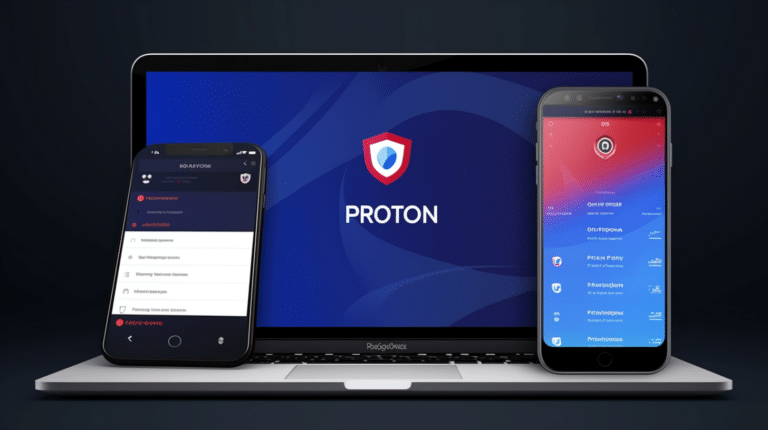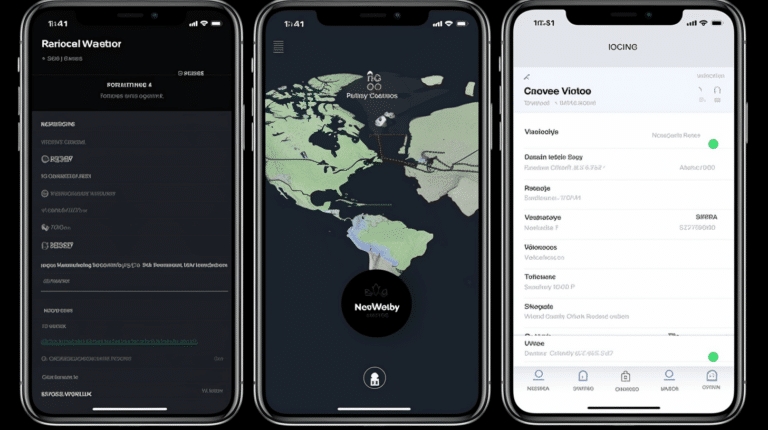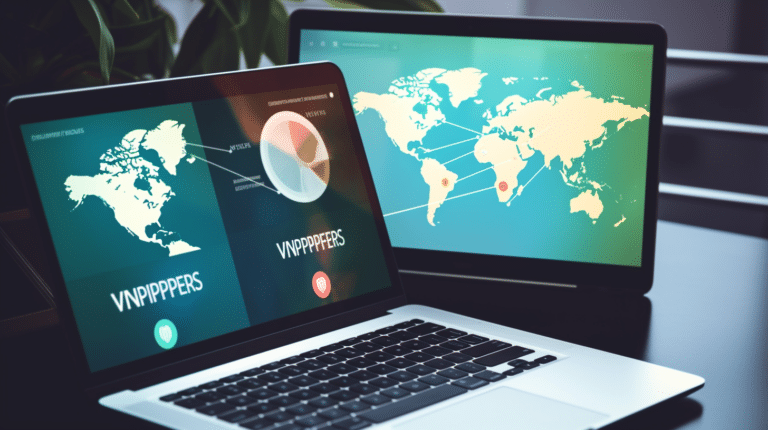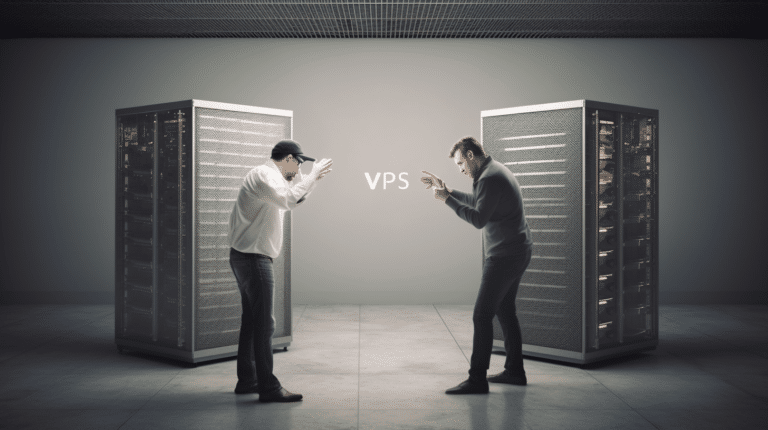In today’s digital age, protecting your online privacy is more important than ever. One of the most effective ways to achieve this is by using a VPN, or Virtual Private Network. VPNs help secure your data by encrypting your internet connection and hiding your IP address, allowing you to browse the web with confidence, knowing that your personal information is safeguarded.
However, as with any technology, VPNs come with their own set of pros and cons that users should be aware of before deciding to use one. While they offer numerous benefits, such as increased security and access to geo-restricted content, there are also drawbacks, including potential incompatibility with certain devices and being banned in some countries. With these factors in mind, it is essential to weigh the advantages and disadvantages of using a VPN to determine if it is the right fit for your needs.
Key Takeaways
- VPNs contribute to enhanced online privacy and data security but may have some disadvantages.
- Users should consider their specific needs and research different VPN providers before choosing one.
- Exploring additional digital privacy options beyond VPNs can further protect your online activities.
Benefits of Using a VPN
Internet Privacy and Anonymity
A VPN (Virtual Private Network) provides a high level of internet privacy by encrypting your online data and masking your IP address. When you use a VPN, your internet service provider (ISP) and websites cannot see your online activity, as it is tunneled through a secure encrypted connection to the VPN server. This helps in keeping your personal info and browsing habits safe from hackers, surveillance, and unwanted tracking.
Access to Geo-Restricted Content
A VPN service allows you to change your IP address to one from another country, effectively bypassing geo-restricted content and enabling access to a wider range of streaming services and websites not available in your region. Moreover, a VPN allows you to bypass country-specific censorship, giving you the freedom to explore the global internet without limitations.
Improved Online Security
Using a VPN enhances your online security by encrypting your data with military-grade encryption protocols, such as OpenVPN, IKEv2, and WireGuard. These encryption protocols make it difficult for hackers to intercept or decipher your personal information, including your passwords and financial data. Furthermore, most VPN providers offer additional security features like a kill switch, which automatically disconnects your internet connection if the VPN connection is lost, ensuring your data remains secure.
Avoiding ISP Throttling
Throttling is a practice wherein ISPs intentionally slow down your internet connection based on your online activities, such as streaming or torrenting. With the help of a VPN, you can avoid bandwidth throttling as your ISP will not be able to monitor your online activities. By encrypting your connection and routing it through the VPN server, your ISP sees only the encrypted traffic, allowing you to maintain a consistent and faster connection speed.
Bypassing Censorship
VPNs can be used to bypass censorship by masking your true location and routing your traffic through a VPN server in a country with unrestricted internet access. This enables you to access websites and content that may be blocked or censored in your country, ensuring your right to access information and communicate freely online.
In conclusion, using a VPN offers numerous benefits, including improved internet privacy, access to geo-restricted content, enhanced online security, avoiding ISP throttling, and bypassing censorship. These advantages make VPNs essential tools for individuals and businesses seeking a secure and unrestricted internet experience.
The Drawbacks of VPNs
While VPNs can offer numerous benefits, there are also some disadvantages to consider. In this section, we will discuss the potential for slower connection speeds, risk of malware, VPN service dependability, and cost considerations associated with VPNs.
Potential for Slower Connection Speeds
One of the main drawbacks of using a VPN is that it can potentially cause slower connection speeds. Since your data is encrypted and routed through a VPN server, it can sometimes result in a slower internet connection. This is particularly true when connecting to a server located far away from your physical location or when using a VPN with a high number of users. It is important to consider the connection speed offered by different VPN providers and whether it will meet your needs.
Risk of Malware
Another concern with VPNs, particularly with free VPNs, is the risk of malware. Some VPN providers may inject ads or sell your data to third parties, which could expose you to malicious software or cybercrime. To avoid this issue, it is crucial to do thorough research and choose a reputable VPN provider like Surfshark, TunnelBear, or CyberGhost.
VPN Service Dependability
Not all VPN services are created equal, and their dependability can vary widely. Some VPN providers may have unreliable servers, leading to frequent connection drops or unavailability. Additionally, a VPN provider’s security protocols and encryption standards might not be as robust as others, leaving users more vulnerable to cyberattacks or data breaches. When selecting a VPN service, it is important to research and compare the dependability of different providers.
Cost Considerations
Lastly, the cost of a VPN service can be a drawback for some users. While there are free VPNs available, many of them come with the risks mentioned earlier, and their performance is often subpar. On the other hand, premium VPN services can be more expensive than a typical internet service provider subscription. To find a VPN service that offers a good balance between cost and performance, it is helpful to compare the plans and features offered by various providers.
VPN for Streaming Services
When it comes to using VPNs for streaming services, there are several benefits, such as unblocking content on popular platforms, accessing region-specific content, and maintaining privacy. In this section, we will discuss a few of these benefits in detail.
Unblocking Netflix and Hulu
One significant advantage of using a VPN is the ability to unblock streaming content on platforms like Netflix and Hulu. These popular streaming sites often have region-specific libraries, which means some content is only available to viewers in certain countries. By using a VPN service, you can connect to a server in another country, effectively changing your virtual location and gaining access to that region’s content library.
Accessing BBC iPlayer abroad
Similarly, the BBC iPlayer offers a vast range of high-quality content for viewers within the UK. However, it has strict geographic restrictions in place, making it challenging to access from other countries. Using a VPN can enable users to bypass these restrictions and access the BBC iPlayer from anywhere by connecting to a UK-based server.
Bypassing Region-Locked Content on Amazon Prime Video
Amazon Prime Video also offers region-locked content, with different libraries available in each country. A VPN can help bypass these restrictions by changing your virtual location, allowing you to access content that’s otherwise not available in your region. Some of the top VPNs for streaming have a proven track record for successfully unlocking content on Amazon Prime Video.
In conclusion, using a VPN for streaming services can significantly expand the range of content available to you. Furthermore, it adds a layer of privacy and security to your online activities while streaming your favorite shows and movies.
VPN Providers Analysis
In this section, we will analyze some top VPN providers, covering ExpressVPN, NordVPN, and ProtonVPN.
ExpressVPN Review
ExpressVPN is a highly-regarded VPN service known for its impressive server locations and speed. With over 3,000 servers in 94 countries, users have a wide range of options for connecting to various locations. ExpressVPN uses the AES-256 encryption standard, ensuring a high level of security for data transmission.
- Server Locations: 3,000+ servers in 94 countries
- Encryption: AES-256
Speed is one of ExpressVPN’s strong points, allowing for seamless streaming and browsing experiences. Its user-friendly interface enables easy installation and use for both beginner and advanced users. However, the pricing might be a concern for some, as ExpressVPN is on the higher end compared to other VPN services.
NordVPN Assessment
NordVPN is another top contender in the VPN market. It offers over 5,100 servers in 60 countries, including a range of obfuscated servers, which help bypass restrictions and maintain user privacy.
- Server Locations: 5,100+ servers in 60 countries
- Encryption: AES-256
Obfuscated servers are special servers designed for use in countries with strict internet censorship or VPN restrictions. NordVPN’s AES-256 encryption and additional security features like CyberSec and a Double VPN ensure user data remains protected.
NordVPN is known for its affordability, as it offers competitive pricing plans with an impressive list of features. One drawback some users report is an occasional drop in connection speed, which might affect streaming or gaming experiences.
ProtonVPN Overview
ProtonVPN is a relatively newer VPN service, but it has quickly gained popularity due to its focus on privacy and security. With over 1,200 servers in 55 countries, it offers a decent range of server locations.
- Server Locations: 1,200+ servers in 55 countries
- Encryption: AES-256
The company is based in Switzerland, which has strong privacy laws, adding an extra layer of protection for users. ProtonVPN supports the Tor network, allowing users to experience an even higher level of privacy and access to .onion websites.
Despite its emphasis on privacy and security, ProtonVPN offers competitive speeds for most users. However, its free version has limitations on server locations and connection speeds. To unlock the full potential of ProtonVPN, users may need to opt for one of the paid plans.
Advanced VPN Features
In this section, we will discuss advanced VPN features that provide additional layers of security and convenience for users. These features include Split Tunneling, Multi-Hop Connections, and DDoS Protection.
Split Tunneling
Split Tunneling is a useful feature that allows users to route specific traffic through the VPN while allowing other traffic to bypass it. This can help conserve bandwidth usage and improve the connection speed for certain activities. For example, you may want to route your browsing traffic through the VPN for privacy reasons, while allowing your streaming service traffic to bypass the VPN for better performance.
Multi-Hop Connections
Multi-Hop Connections, also known as Double VPN or cascading VPNs, are a security feature in which your connection passes through multiple VPN servers, encrypting your data multiple times before reaching its destination. This adds an extra layer of anonymity and makes it even more difficult for anyone to track your activities online. However, it’s worth noting that using multi-hop connections can further reduce the connection speed due to the additional encryption and routing.
DDoS Protection
Distributed Denial of Service (DDoS) attacks are attempts to disrupt online services by overwhelming them with a flood of traffic. By using a VPN with built-in DDoS protection, you can effectively shield your IP address from potential attackers, reducing the chance of falling victim to such attacks. In addition, a VPN can help mitigate the effects of bandwidth throttling, allowing for a more stable and reliable connection.
These advanced VPN features are beneficial to users seeking a more secure and customizable online experience. While they may come with some slight trade-offs, such as connection speed, their advantages in terms of privacy, anonymity, and protection against threats like DDoS make them valuable additions to any VPN service.
Quieting the Noise: Understanding VPN Ads and Trackers
Ad Targeting and VPNs
Advertisers have become increasingly sophisticated in their methods to deliver targeted ads to their desired audience. This involves collecting data from users, such as browsing history, interests, and location, which is often done through trackers. Using a VPN can help obscure your digital footprint and protect your privacy from targeted advertising. A VPN changes your visible IP address, making it challenging for advertisers to pinpoint your location and preferences.
However, not all VPN services take the same approach to ensure your privacy. Some may include built-in ads or even sell user data to generate revenue. It’s essential to choose a reputable VPN service that has a strict no-logs policy and doesn’t collect or sell user data. CNET provides valuable insights on finding a VPN that genuinely safeguards your privacy.
Avoiding Trackers with a VPN
Trackers are commonly used by advertisers and other online services to collect user data and build profiles for targeted advertising. A VPN can substantially reduce the risk of being tracked by:
- Encrypting your internet connection, making it difficult for third parties to intercept your data.
- Masking your IP address, which is a unique identifier that can reveal your location and browsing habits.
For the best protection against trackers, consider using a VPN with AES-256 bit encryption, a military-grade standard that is widely regarded as virtually uncrackable. MacPaw explains how this robust encryption method can keep your online activities private.
Additionally, using features such as split tunneling can further strengthen your privacy by enabling you to route only specific internet traffic through the VPN, reducing the possibility of data leakage or exposure to trackers.
Keep in mind that while a VPN can significantly improve your online privacy, it is not a perfect solution. Some advanced tracking methods, like browser fingerprinting, can still identify and track users, even when using a VPN. It’s essential to complement your VPN usage with other privacy-enhancing tools and practices, such as regularly clearing cookies and using privacy-focused browser extensions.
Digital Privacy Beyond VPNs
While VPNs are an essential tool for enhancing your online privacy, there are other measures you can take to protect your data and identity online. In this section, we’ll discuss the importance of password managers, the advantages of multi-factor authentication, and why using an antivirus is essential for digital security.
Importance of Password Managers
Password managers are a crucial tool for maintaining strong, unique passwords for each of your online accounts. They store your passwords securely, requiring you to remember just one master password. Some of the key benefits of using a password manager include:
- Better security: Password managers ensure you use unique and strong passwords for each account, reducing the risk of multiple accounts being compromised if one password is breached.
- Ease of use: A good password manager will automatically fill in your login information, making it quick and easy to access your accounts without typing in passwords manually.
- Password generation: Most password managers can generate complex, random passwords for you, taking the guesswork out of creating secure passwords.
Advantages of Multi-Factor Authentication
Multi-factor authentication (MFA) adds an extra layer of security to your online accounts by requiring additional verification steps before granting access, such as:
- Something you know (e.g., password or PIN)
- Something you have (e.g., mobile device or security token)
- Something you are (e.g., fingerprint or facial recognition)
Using MFA offers the following advantages:
- Additional security: Even if someone manages to acquire your password, they would still need the additional authentication factor(s) to access your account.
- Prevention of unauthorized access: MFA makes it more difficult for attackers to gain access to your accounts, as they would need multiple factors of authentication.
- Quick response to security threats: If an attacker tries to access your account, you will be alerted through the additional authentication factor, allowing you to take prompt action.
Why Use an Antivirus
Antivirus protection is essential for safeguarding your devices and data from various digital threats. Some key reasons to use antivirus software are:
- Detection and removal of malware: Antivirus software detects and removes viruses, Trojans, and other malware, preventing them from harming your system.
- Real-time scanning: Modern antivirus programs can constantly scan your device in real time, spotting threats before they have a chance to cause damage.
- Phishing protection: Advanced antivirus solutions also protect against phishing attacks, preventing you from falling victim to scams targeting your personal information.
Combining these digital privacy tools with a VPN will provide more comprehensive protection for your online activities, ensuring that your data and identity remain secure.
VPNs and Public Networks
Public Wi-Fi Safety
Using a VPN on public Wi-Fi networks comes with several advantages, and the primary benefit is security. When connecting to a public Wi-Fi hotspot, your data is at risk of being intercepted by hackers or other malicious parties. By encrypting your data before it leaves your device, a VPN adds a significant layer of protection against such threats. This means, even if your data gets intercepted on an unsecured network, it cannot be read by attackers 1.
Avoiding Man-in-The-Middle Attacks
Man-in-the-middle (MITM) attacks are one of the main risks associated with using public Wi-Fi networks. These attacks occur when a hacker inserts themselves between your device and the network, effectively intercepting all your internet traffic2. A VPN can help protect against MITM attacks by creating a secure, encrypted tunnel between your device and the VPN server. This tunnel ensures that your data is encrypted and cannot be easily intercepted by a third party3.
To summarize, using a VPN on public networks provides:
- Safety and Security: Encrypting your connection provides a barrier against hackers and malicious parties.
- Protection Against MITM Attacks: VPNs create a secure, encrypted tunnel that makes it difficult for attackers to access your data.
By using a VPN on public Wi-Fi networks and following the best security practices, you can significantly reduce the risks associated with connecting to public hotspots.
Other VPN Use Cases
VPNs for Remote Work
VPNs play a crucial role in enhancing security for remote work scenarios. By using a VPN, remote employees can establish a secure connection to their company’s network, protecting sensitive data from unauthorized access and cyber threats. In addition, VPNs help maintain privacy by masking employees’ IP addresses, making it more difficult for hackers to target their devices.
Journalists and VPNs
Journalists often rely on VPNs to preserve their anonymity and protect sensitive information they gather in their reporting. A VPN allows journalists to access restricted websites or content in regions with strict internet censorship, enabling them to report on stories that might be suppressed by local governments. Additionally, VPNs provide an added layer of security against cyber attacks and surveillance, which is crucial for journalists working with whistleblowers or in high-risk environments.
Bypassing Price Discrimination
Consumers can use VPNs to bypass price discrimination practiced by some online retailers and service providers. By changing the IP address to a different location, users can access regional pricing differences, potentially finding lower prices for flights, hotels, or digital goods. It’s important to note that circumventing these pricing structures may violate the terms of service for certain platforms and could result in penalties or account suspension. So, users should exercise caution when employing this strategy.
Frequently Asked Questions
What are the main advantages of using a VPN for online security?
VPNs offer enhanced security by encrypting your entire network traffic, making it difficult for hackers or third parties to intercept your data. This protection is particularly important when using public Wi-Fi networks that are more susceptible to cyberattacks. VPNs also help with privacy, since your internet service provider cannot see your online activities when a VPN is in use.
How do different types of VPNs compare in terms of pros and cons?
There are various types of VPNs, each with its own set of pros and cons. For instance, some might focus more on privacy, while others emphasize security or speed. Some VPNs use highly secure encryption methods, such as AES-256, which is used by the military and banks. It is essential to research and compare different VPNs to determine which one best suits your specific needs and preferences.
What are the benefits and drawbacks of using a VPN on mobile devices?
Using a VPN on mobile devices offers the same privacy and security benefits as on desktops and laptops. However, there might be some drawbacks, such as reduced speed or potential battery drain due to the continuous encryption process. Additionally, not all VPNs provide dedicated mobile apps or the same level of security features for mobile as they do for desktops.
How can businesses weigh the advantages and disadvantages of VPN usage?
Businesses must consider their specific needs to determine whether using a VPN is beneficial. Factors to consider include data protection and compliance, remote work requirements, and the need for secure connections when working on public networks. On the other hand, businesses must also consider the potential cons, such as reduced internet speeds, VPN service cost, and adequate support for the organization’s size and network infrastructure.
Are there any specific concerns or benefits when using popular VPN services like NordVPN?
Popular VPN services like NordVPN offer numerous advantages such as robust security features, a large number of server locations, and faster speeds than lesser-known providers. However, with popularity comes increased scrutiny, so these services might be more likely to experience service disruptions due to targeted cyberattacks or increased pressure from governments seeking to regulate VPN usage.
Under what circumstances might using a VPN not be recommended?
There are certain situations where using a VPN might not be recommended. For instance, some countries ban or heavily regulate VPN usage, and using one in these regions might have legal consequences. Additionally, if your primary goal is to maximize internet speeds or reduce latency without concern for privacy or security, a VPN might not be the best solution, as it may increase latency and reduce overall connection speed.






